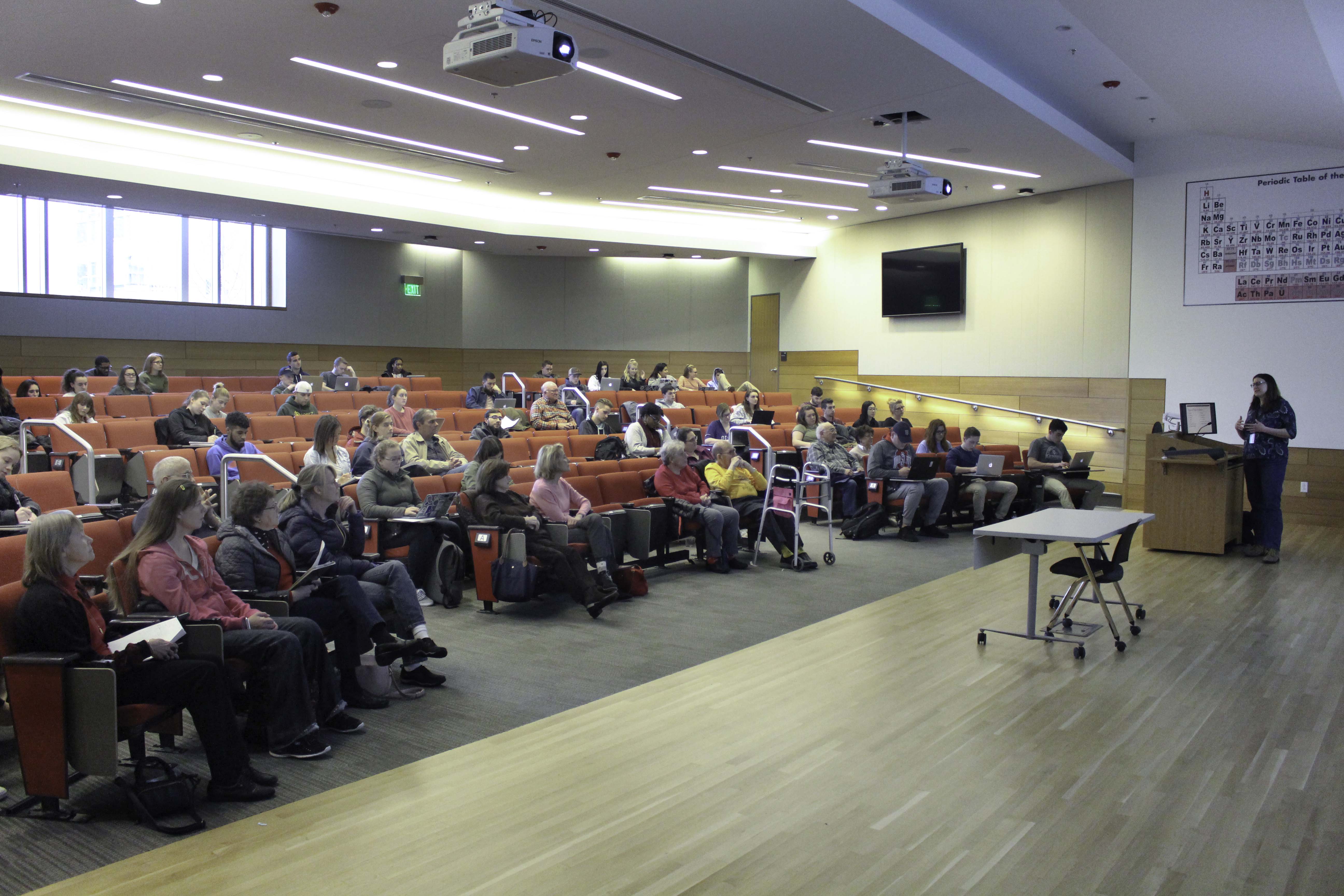The criminal justice major is growing in popularity. Currently the University offers a lecture series every Friday night for those interested in learning more about forensic science. Photo by James McIntosh.
Following the rapid growth of incoming students who applied to the criminal justice major at the University of Rhode Island, the department has hired a new full-time faculty member.
Chelsea Farrell, current Northeastern University Doctoral Candidate, will join URI’s Department of Criminology and Criminal Justice for the 2019 fall semester.
The major, new to URI in the fall of 2017, currently has approximately 330 students enrolled. For the upcoming fall semester, nearly 300 students have applied to URI as a criminal justice major. The department expects to gain approximately 80 students. These numbers have stayed consistent from last year, making criminal justice a very popular program among incoming freshmen.
Despite the growth of the program, criminal justice has only four full-time faculty members. These professors teach the majority of the major-specific classes in the department.
The program is interdisciplinary which helps alleviate some of the pressure on those four professors.
As an interdisciplinary program, the major spans across six other departments: political science, sociology, gender and women’s studies, economics, chemistry and psychology. They use classes and professors from each of these departments to help students fulfill the requirements needed to graduate with a criminal justice degree.
“Students are still able to be on time with their degree by taking classes that are not [criminal justice] classes, but there are still requirements or options within the major for students to take towards their degree,” said Dr. Natalie Pifer, assistant professor of criminal justice. “There’s a lot of different social science departments on campus that are able to offer seats for our students in this major.”
However, as more applicants and students are interested in majoring in criminal justice, adding an additional professor position was becoming necessary.
“It will really allow us to offer not only more of our required classes but free up opportunities for our faculty to offer electives more regularly,” Pifer said. “There is certainly a story to be told about the growing number of students pursuing or interested in pursuing the [criminal justice] program here at URI, and we are hoping to grow our program even more from the faculty side.”
Farrell offers a new expertise to the program. Her focus areas in her doctoral pursuits have emphasized gendered and racialized etiology of victimization and offending, communities and crime and intersectionality. She will bring a new set of specialization that is not yet in the department.
Farrell’s addition also brings about more flexibility for the department to change the classes they offer per semester.
“We’re hopeful that in the future we’ll be able to add more faculty,” Pifer said. “With more faculty means more seats, not only for required classes, but we’ll also be able to offer those electives that students are really craving.”
Dr. Jill Doerner, the chair of the Department of Criminology and Criminal Justice, is also excited about the addition of the new faculty member to the department.
“Being able to add five new sections of classes a year will make a big dent and make things a little bit more flexible for our students who need to take these classes,” Doerner said.
Farrell will be teaching the “Race, Crime, and Justice” class as well as the “Crime and Delinquency” class in the upcoming fall and spring semesters. This opens up another professor in the department’s schedule to offer a “Criminal Justice Ethics” course.
The criminal justice major will continue to be interdisciplinary in order to satisfy student needs and major requirements.
“I think it’s important for it to be [interdisciplinary],” Doerner said. “It was definitely something we went in that direction with because it was something students were doing on their own based upon what they wanted to get out of it. To have a holistic program, you really need all of those perspectives. It will be important to make sure students get those views and those other contributions from the other social sciences because we’ve seen how important they are when they leave here.”

